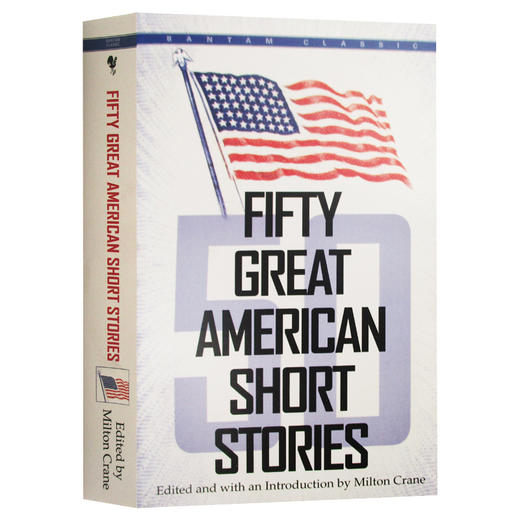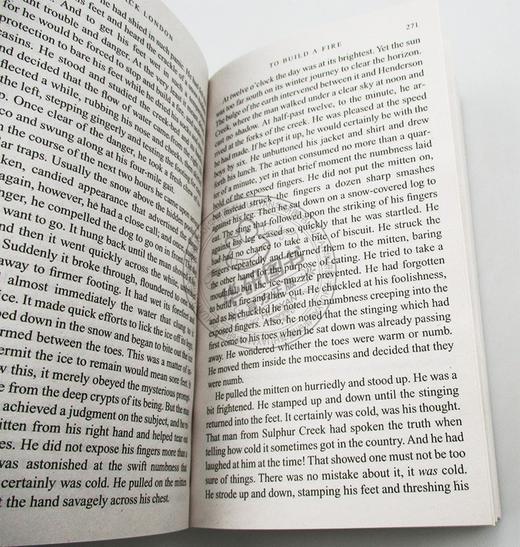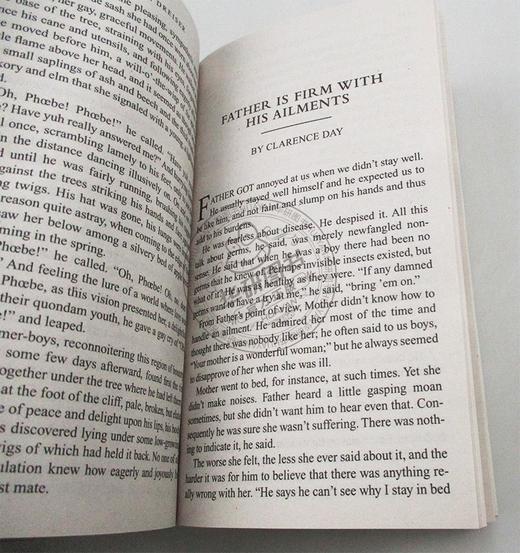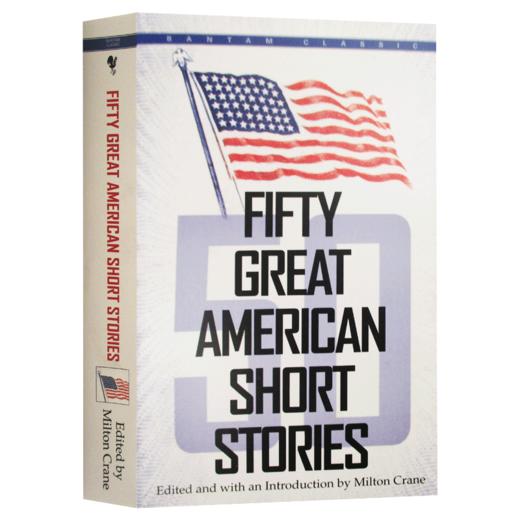Fifty Great American Short Stories 50篇zhu名美国短篇小说 英文原版书 进口书籍 英文版
| 运费: | ¥ 0.00-999.00 |
| 库存: | 14 件 |
商品详情
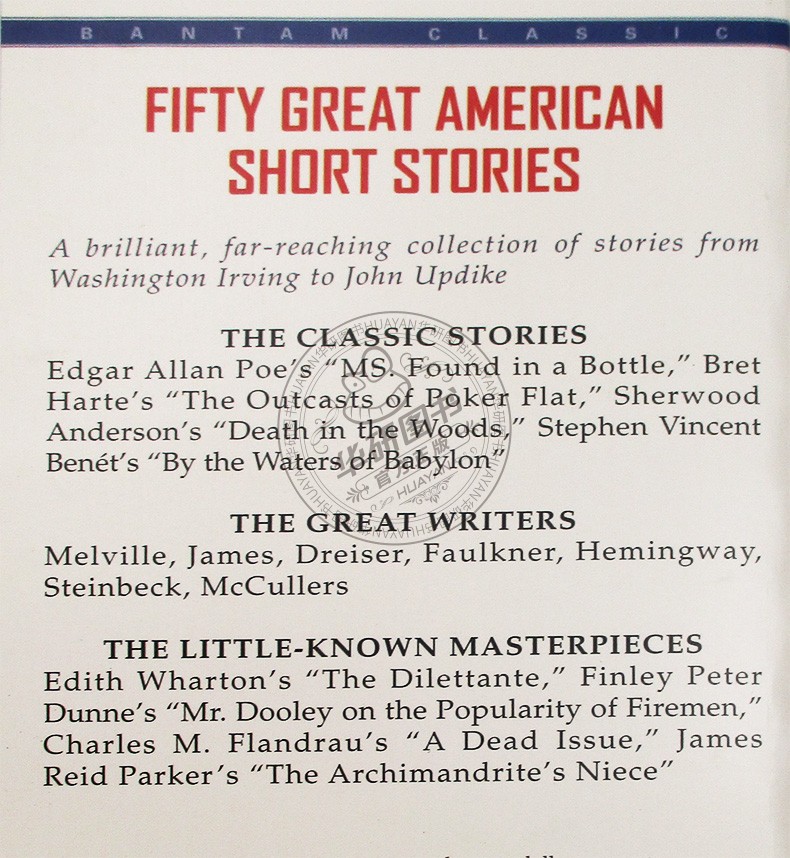
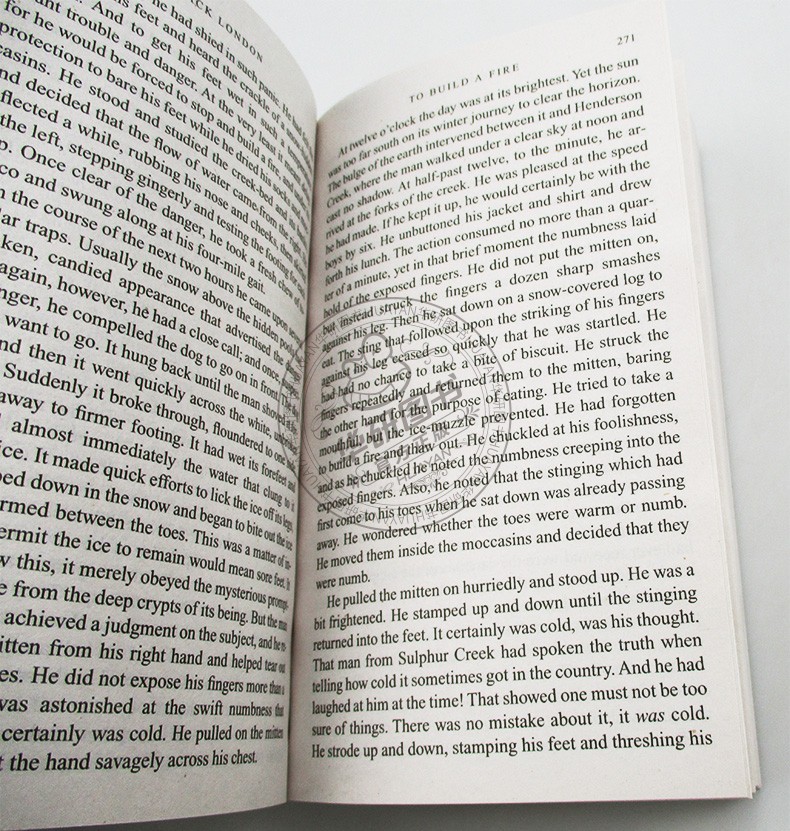
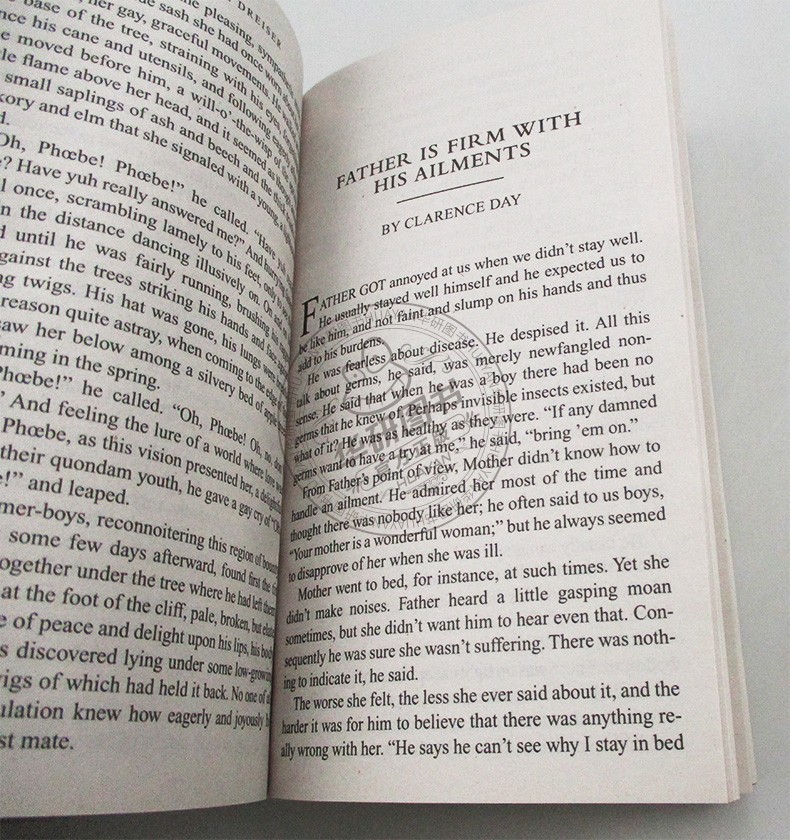
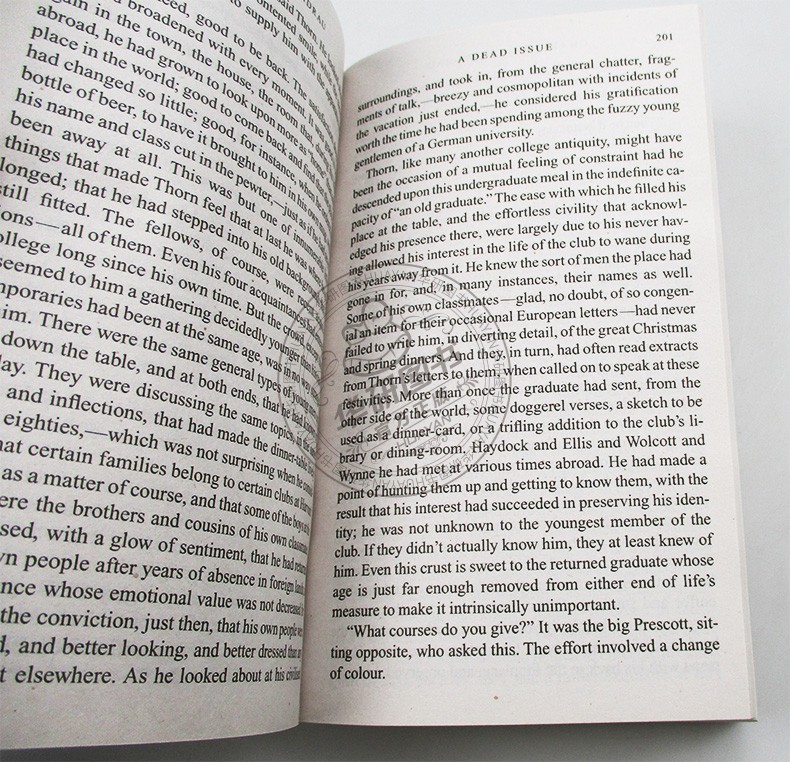

书名:50 Great American ShortStories 美国短篇小说精粹50篇
作者:Milton Crane
出版社名称:Bantam Classic
出版时间:2008
语种:英文
ISBN:9780553272949
商品尺寸:10.6 x2.8 x 17.4 cm
包装:简装
页数:654

50 Great American ShortStories《美国短篇小说精粹50篇》书中共收录了美国著名作家的经典短篇小说50篇,适合英文原版书入门读者,希望通过阅读提高英语词汇量及爱好英语文学作品的读者。
推荐理由:
1.本书收录的小说大都是名家之作,可以从中学到优秀的英语表达;
2.美国短篇小说集锦,英文原版无删减,语言地道流畅;
3.作品内容包罗万象,每一篇都值得思考体会;
4.此版本为Bantam Classic版本,附有主编Milton Crane(米尔顿·克兰)所作引言,有助于读者理解小说内容。
A brilliant, far-reaching collection of stories from Washington Irving to John Updike.
The Classic Stories
Edgar Allan Poe’s “Ms. Found in a Bottle”, Bret Harte’s “The Outcasts of Poker Flat”, Sherwood Anderson’s “Death in the Woods”, Stephen Vincent Benét’s “By the Waters of Babylon”
The Great Writers
Melville, James, Dreiser, Faulkner, Hemingway, Steinbeck, McCullers
The Little-Known Masterpieces
Edith Wharton’s “The Dilettante”, Finley Peter Dunne’s “Mr. Dooley on the Popularity of Fireman”, Charles M. Flandrau’s “A Dead Issue”, James Reid Parker’s “The Archimandrite's Niece”

50 Great American ShortStories《美国短篇小说精粹50篇》共收录50篇美国作家的经典著作,其中不乏名家之作,以及鲜为人知的经典著作,每一篇都匠心独运、令人回味无穷,抑或包含着深刻的哲理,值得一看。
The fifty stories that compose this book mirror the development of American literature, from the gradual discovery of the American mind and nation to the new awareness of an identifiably American imagination. And it is altogether fitting that the short story, with its instantaneous snapshots of life arrested and captured, should have emerged as the characteristic and outstandingly successful form in which this imagination has found expression.
Milton Crane米尔顿·克兰是乔治·华盛顿大学及芝加哥大学英语语言文学退休教授。著有大量英国文学相关书籍及文章。同时,希尔顿·克兰是《50篇优秀短篇小说》一书的编者。
Milton Crane is Professor Emeritus of English Language and Literature at George Washington University and the University of Chicago. He is the author of several books and articles on English literature, as well as the editor of the Bantam anthology, 50 Great American Short Stories.

THE ADVENTURE OF THE GERMAN STUDENT Washington Irving
YOUNG GOODMAN BROWN Nathaniel Hawthorne
MS. FOUND IN A BOTTLE Edgar Allan Poe
THE FIDDLER Herman Melville
WHAT WAS IT? Fitz-James O’Brien
LUCK Mark Twain
THE OUTCASTS OF POKER FLAT Francis Bret Harte
THE DAMNED THING Ambrose Bierce
THE TWO FACES Henry James
A NEW ENGLAND NUN Mary E. Wilkins Freeman
THE COURTING OF SISTER WISBY Sarah Orne Jewett
THE DILETTANTE Edith Wharton
MASTERS OF ARTS O. Henry
EFFIE WHITTLESY George Ade
MR. DOOLEY ON THE POPULARITY OF FIREMEN Finley Peter Dunne
THE BRIDE COMES TO YELLOW SKY Stephen Crane
A DEAD ISSUE Charles M. Flandrau
THE LOST PHOEBE Theodore Dreiser
FATHER IS FIRM WITH HIS AILMENTS Clarence Day
DEATH IN THE WOODS Sherwood Anderson
TO BUILD A FIRE Jack London
THE USE OF FORCE William Carlos Williams
OLD FOLKS’ CHRISTMAS Ring Lardner
SILENT SNOW, SECRET SNOW Conrad Aiken
BY THE WATERS OF BABYLON Stephen Vincent Benét
SOLDIERS OF THE REPUBLIC Dorothy Parker
MR. PREBLE GETS RID OF HIS WIFE James Thurber
CLUNEY MCFARRAR HARDTACK John McNulty
THE DARKNESS OF THE NIGHT Robert M. Coates
THE OLD PEOPLE William Faulkner
GRAPES FOR MONSIEUR CAPE Ludwig Bemelmans
A MAN OF THE WORLD Ernest Hemingway
THE HOUR OF LETDOWN E. B. White
THE RESTING PLACE Oliver La Farge
THE TOUCH OF NUTMEG MAKES IT John Collier
THE HARNESS John Steinbeck
FRIEND OF THE FAMILY Kay Boyle
THE RUMOR Erskine Caldwell
THERE WAS A YOUNG LADY OF PERTH William Saroyan
THE DOWNFALL OF FASCISM IN BLACK ANKLE COUNTY Joseph Mitchell
THE FRENCH SCARECROW William Maxwell
THE BLUE-WINGED TEAL Wallace Stegner
THE ARCHIMANDRITE’S NIECE James Reid Parker
A MOTHER’S TALE James Agee
THE NATIONAL PASTIME John Cheever
THE GIRLS IN THEIR SUMMER DRESSES Irwin Shaw
THE DEATH OF SHORTY Richard P. Bissell
GRANDMA AND THE HINDU MONK Seymour Freedgood
MADAM ZILENSKY AND THE KING OF FINLAND Carson McCullers
THE LUCID EYE IN SILVER TOWN John Updike
Copyright Notices and Acknowledgments
Selected Bibliography

ON A stormy night, in the tempestuous times of the French Revolution, a young German was returning to his lodgings, at a late hour, across the old part of Paris. The lightning gleamed, and the loud claps of thunder rattled through the lofty narrow streets—but I should first tell you something about this young German.
Gottfried Wolfgang was a young man of good family. He had studied for some time at Gottingen, but being of a visionary and enthusiastic character, he had wandered into those wild and speculative doctrines which have so often bewildered German students. His secluded life, his intense application, and the singular nature of his studies, had an effect on both mind and body. His health was impaired; his imagination diseased. He had been indulging in fanciful speculations on spiritual essences, until, like Swedenborg, he had an ideal world of his own around him. He took up a notion, I do not know from what cause, that there was an evil influence hanging over him; an evil genius or spirit seeking to ensnare him and ensure his perdition. Such an idea working on his melancholy temperament produced the most gloomy effects. He became haggard and desponding. His friends discovered the mental malady preying upon him, and determined that the best cure was a change of scene; he was sent, therefore, to finish his studies amidst the splendors and gayeties of Paris.
Wolfgang arrived at Paris at the breaking out of the revolution. The popular delirium at first caught his enthusiastic mind, and he was captivated by the political and philosophical theories of the day: but the scenes of blood which followed shocked his sensitive nature, disgusted him with society and the world, and made him more than ever a recluse. He shut himself up in a solitary apartment in the Pays Latin, the quarter of students. There, in a gloomy street not far from the monastic walls of the Sorbonne, he pursued his favorite speculations. Sometimes he spent hours together in the great libraries of Paris, those catacombs of departed authors, rummaging among their hoards of dusty and obsolete works in quest of food for his unhealthy appetite. He was, in a manner, a literary ghoul, feeding in the charnel-house of decayed literature.
Wolfgang, though solitary and recluse, was of an ardent temperament, but for a time it operated merely upon his imagination. He was too shy and ignorant of the world to make any advances to the fair, but he was a passionate admirer of female beauty, and in his lonely chamber would often lose himself in reveries on forms and faces which he had seen, and his fancy would deck out images of loveliness far surpassing the reality.

- 华研外语 (微信公众号认证)
- 本店是“华研外语”品牌商自营店,全国所有“华研外语”、“华研教育”品牌图书都是我司出版发行的,本店为华研官方源头出货,所有图书均为正规正版,拥有实惠与正版的保障!!!
- 扫描二维码,访问我们的微信店铺
- 随时随地的购物、客服咨询、查询订单和物流...

